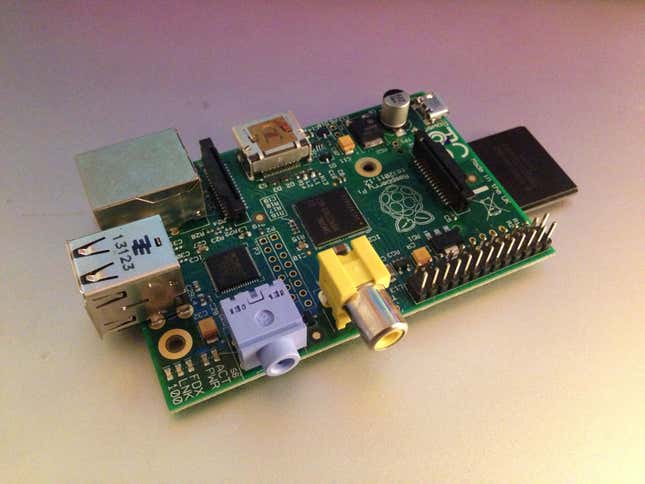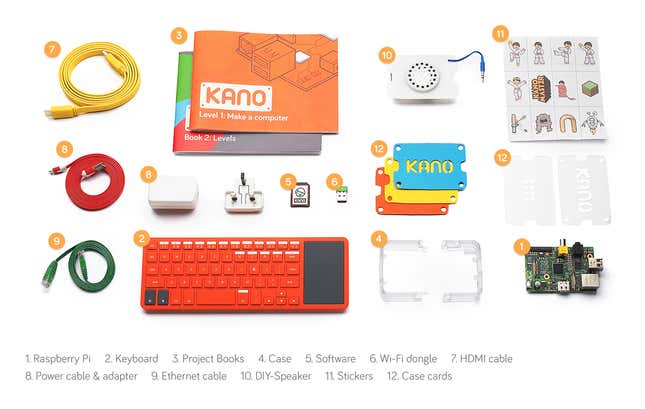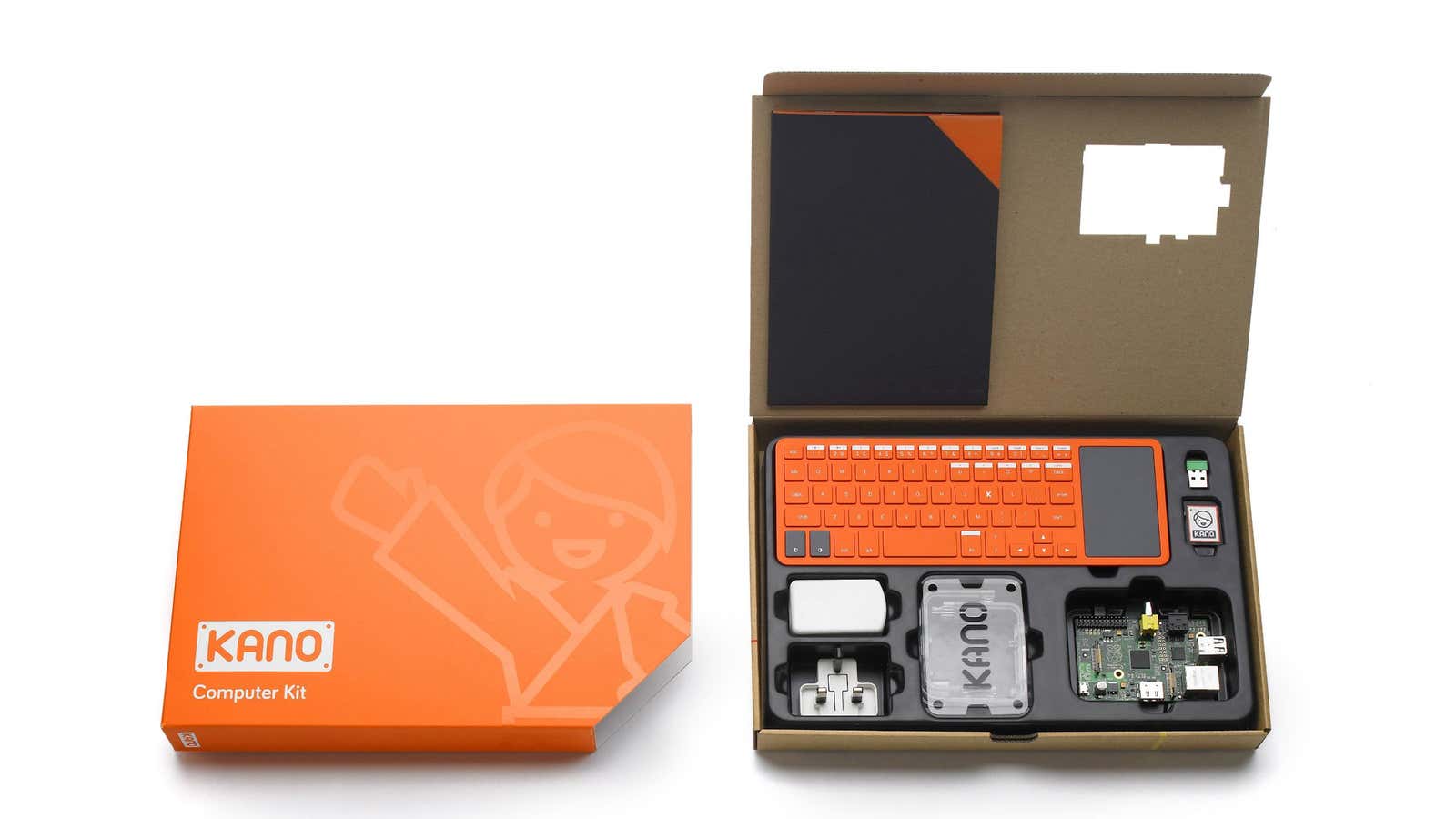The creators of Kano, a kit to assemble your own mini-computer, asked for $100,000 on Kickstarter. One day short of the end of the company’s campaign, they’ve raised $1.35 million from nearly 12,000 backers including Apple co-founder Steve Wozniak and Kickstarter co-founder Yancey Strickler. Alex Klein, one of the three creators of Kano, says people from 44 countries have chipped in (though the majority—some 40%—are American).
Why do these people, all of whom presumably own readymade computers from which they clicked the “back this project” button on Kickstarter, want to build their own machines? It has a lot to do with Kano’s sleek look and its promise to teach them how computers actually work. To do that it uses something called the Raspberry Pi, a $35 British micro-computer that got a lot of attention earlier this year when it hit the twin milestones of shipping a million British-made units and 2 million overall.

The Raspberry Pi, like the Kano, promises a DIY experience to inexperienced amateurs. Yet it poses a challenge for the computer illiterate: On its own, the Pi does nothing. It is just a circuit board. Enthusiastic amateurs who buy a Pi discover that they then have to locate peripherals (like a power cord and a screen), download and install an operating system, learn how to interact with a command line and, when they finally have it set up, figure out what to do next. Despite being built to teach basic computing skills to young people, the Pi found its biggest success among the existing hacker community.
Make it simple, but not stupid

Kano, which already received funding from Index Ventures, where one of its founders works, hopes to help fulfill the promise of the Raspberry Pi while offering much more. “The experience of Kano relies on Raspberry Pi but it is its own product,” says Klein. Kano comes with the basics—a Pi, a compatible keyboard and other peripherals, and most importantly, software to help newbies get started. (You still need your own screen.) One of the things Kano’s creators talk up is the ability to create your own version of Pong, the pioneering arcade game that consisted of two rectangles of white pixels playing a circle of white pixels. A fun, basic challenge like making Pong is a good way to get started with learning programming, says Klein.
It is a sophisticated offering on many levels. The design is instantly appealing, some of the hardware, such as the keyboard, is made from scratch, and the software has been custom-made to be user-friendly. It may seem like a cop-out to some of the Pi’s hardcore fans, but by making DIY computing easier to understand, Kano’s creators are doing their backers a favor. At a time when laptops and phones come entirely sealed with no way to even remove the battery, consumer technology has become evermore closed off. An understanding of how it all works gives regular people a chance to regain some of the lost power.
